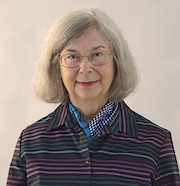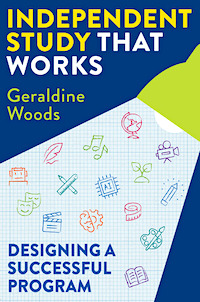[ad_1]
Trainer Geraldine Woods is the author of a lot more than 50 textbooks for educators and the standard community, including many entries in the well known Dummies sequence. English Grammar For Dummies is 1 extraordinary example.
By Geraldine Woods

I was well prepared for those reactions, offered that children have a tendency to like some topics (and lecturers) much more than they like other individuals. Nevertheless, I was not organized for the fog that settled above her features when she explained that her college reserved a person interval of the working day for independent study.
“It’s when a trainer tells you what do the job you have to do. But no one particular checks just about anything, so a ton of youngsters just sit there.” She used what is arguably the worst label a tween can muster: “Independent research is tedious!”
“How about flipping the product?” I countered. “What if you instructed the teacher what function you’d do and the trainer checked almost everything?”
The fog lifted and a vibrant smile emerged. “That would be amazing,” she stated.
And it is amazing. I know because I was in cost of impartial study at my school for more than a quarter century. Throughout that time, college student right after college student not only satisfied but exceeded my anticipations – and not just “good pupils,” a hugely suspect designation at the ideal of occasions.
I observed struggling learners become stars and disengaged learners consider ownership of their schooling. Although I worked mainly on the high faculty stage, I’ve applied unbiased study procedures to center school classes and witnessed numerous other academics do so as effectively.
Impartial review, no matter if it’s a full-on method or a little improve to an existing assignment, can be successful in a variety of configurations: educational facilities both large and smaller, effectively-resourced and underfinanced, community and non-public. It’s adaptable for homeschooling as very well.
I’m persuaded that some variation of impartial examine will work for most middle university college students if three fundamental ideas are present: pupil choice, grownup direction, and pupils educating learners.
1. College student Selection
We really don’t frequently talk to kids what they want to study. That’s as it should really be. We’re the experts with the schooling and knowledge to see the big photo. We realize which competencies and info college students need to have to acquire the subsequent move in their life.
Nonetheless surely there is space in the school year for a class or a unit, even just 1 assignment, dependent on a very simple question: “What do you want to discover or produce?” Talk to that question and enjoy the floodgates open. A number of responses will be properly outlined, the perfect starting up issue for an independent undertaking. Some will be also wide (“music”) and some also ambitious (“build an strength-effective house”). A few may perhaps be far too constrained (“identify the world’s tallest mountain”). No trouble! All you have to do is inquire more concerns:
- New music project – What type of music? Are you interested in the instruments or the musicians or the enterprise? Would you like to do research, or do you want to compose or complete?
- Energy-efficient-household task – Will you study how energy-productive units perform? Do you want to draw ideas for an power-productive property? Construct a product?
- Mountain task – After you identify which mountain is the world’s tallest, would you like to explore how mountains are measured? Do you want to analysis the geological forces that formed the mountain? Which crops and animals stay in that environment?
I could go on, but you see how the system performs. The student’s concept continues to be central, but the teacher’s input is essential – which delivers me to the second important ingredient of impartial examine.
2. Grownup Direction
As philosophers and cartoon superheroes usually stage out, with ability comes responsibility. Kids have an innate understanding of electric power, no matter if it’s their have or an authority figure’s. But duty will have to be taught or, extra correctly, nurtured. To hold pupils on keep track of, erect durable guardrails:
Frequent examine-ins – At each phase, from the venture definition I explained above through to the ultimate products, monitor what each and every pupil is accomplishing. This can occur for the duration of a shorter discussion (some instructors program 5-moment “appointments” on the aspect of the home whilst the course performs on impartial assignments) or in a created operate log.
- Intermediate goals – Assist college students identify the actions and interim aims for their work. For a sculpture challenge, this may well be gathering photographs of statues, looking through a reserve about products and approaches, sketching the planned artwork, and sculpting it. For a history investigate task, the university student may well identify feasible resources (created and human), take notes, arrange the product, and produce a report.
- Deadlines – Operate with college students to established deadlines for each and every action of the challenge, verify the function when it is thanks, and outline suitable consequences if something is late. The deadlines can be individual (the sculptor turns in perform on Tuesday, the historian on Friday) or uniform (everyone’s initially stage concluded by the exact date).
- Defined solution – Initiatives perform greatest when they culminate in an expression of information. Manual students to take into consideration all the alternatives – a written report, an infographic, a web page, a overall performance, an show, a laptop or computer method, or a little something else.
A further way to generate guardrails is to strategy independence little by little. You might start off with a teacher-defined assignment, as 1 science instructor did.
To start with, she distributed materials and requested students to manner them into axles and wheels for a “go-rig.” Future, pupils worked all through course to make improvements to the speed and maneuverability of their automobiles. Lastly, at house they established a different go-rig of their own design, using any supplies they wished.
All through this procedure, the trainer was obtainable for aid. So had been other learners: anytime somebody had a breakthrough, the instructor identified the student as a “local expert” whom other folks could seek advice from. Pupils taught their friends – the 3rd principle of efficient unbiased study.
3. Students Teaching College students
We academics know that we understand a subject on a further degree when we train it to an individual else. Why not give that prospect to our pupils? As in the science task I described previously mentioned, a scholar who has mastered a talent can show it to classmates, liberating the grownup trainer for other responsibilities and imparting self-confidence and gratification to the student-instructor. Alternatively, you can designate a “teaching day” for each scholar.
Here’s an instance of the pupil-as-trainer strategy from an English system I taught. In the early many years of my occupation, one particular of my regular assignments was a poetry report. Learners were to decide on a perform from a list I provided, research the poem diligently, and present their results to the class. I allotted ten minutes for just about every report.
The course was constantly outwardly attentive, but I knew a lot of minds were wandering behind the well mannered faҫade. How could they not? Basically, I was subjecting them to a lecture – a instructing process I myself would hardly ever use at the pre-school stage.

This small improve built all the variation. What was when a passive listening working experience turned energetic engagement with the text. I’d like to attribute this to enjoy of understanding, but I suspect students’ eagerness to take part arose partly from self defense, as they realized they’d all at some point consider a turn as teacher. “If I make a remark for the duration of Cathy’s discussion,” I imagined them imagining, “she’ll possibly say one thing about my poem.”
The college student-as-trainer design can be tailored to several time frames. It can be compressed into a limited period (say, every single college student teaches for 15 minutes) or expanded to a thread woven throughout the full 12 months (one student-led course for every 7 days). If time is restricted, pupils group-teach with a single or two peers.
The Takeaway
Unbiased study isn’t an addition to your presently more than-stuffed curriculum and weekly agenda. As a substitute, it is a shift from instructor-essential assignments to self-determined perform.
As they pursue their tasks, learners who had been passive recipients of facts embark on an intriguing hunt for understanding, and they increase the quantity of individuals they can transform to for data and guidance. As a substitute of accomplishing for an audience of just one (the teacher), pupils existing their operate to their friends.
And that, as my center college good friend stated, is great.

Geraldine is the creator of the Grammarian in the Town weblog, which explores (frequently with humor and irony) a wide range of topics associated to language, grammar, and writing. She lives in New York Metropolis.
[ad_2]
Supply website link

 Frequent examine-ins – At each phase, from the venture definition I explained above through to the ultimate products, monitor what each and every pupil is accomplishing. This can occur for the duration of a shorter discussion (some instructors program 5-moment “appointments” on the aspect of the home whilst the course performs on impartial assignments) or in a created operate log.
Frequent examine-ins – At each phase, from the venture definition I explained above through to the ultimate products, monitor what each and every pupil is accomplishing. This can occur for the duration of a shorter discussion (some instructors program 5-moment “appointments” on the aspect of the home whilst the course performs on impartial assignments) or in a created operate log.


More Stories
There is Life After School Leadership — TTT4U
How to use Notion
A growing number of Americans are questioning the value of going to college